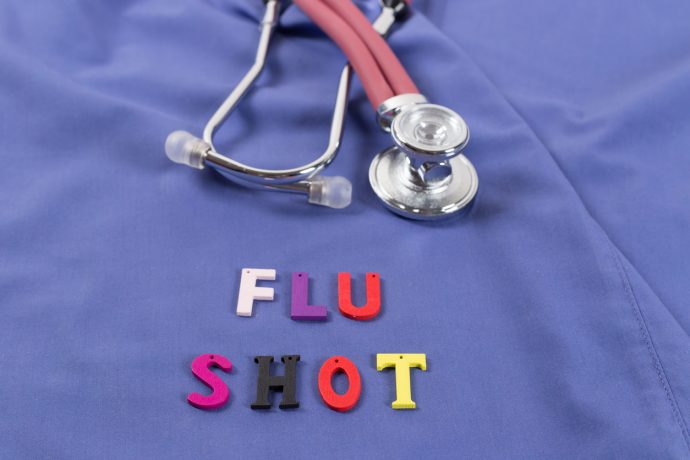As winter approaches, cold weather isn’t the only thing you and your family need to be ready for. Flu season is on its way and the vaccine will help prevent illness.
Millions of children get sick with flu every season. Children, especially school-aged children, are more likely to catch the flu, which can can mean missing a week or more of school. Once infected, children can spread the virus to family members and other people, some of whom might be especially vulnerable to serious flu complications. Some flu illnesses—in children and adults—might even result in hospitalization and death. Flu vaccination can reduce illness, doctors’ visits and missed work and school, as well as prevent hospitalizations for you and your family.
You have the power to protect your family from flu this season by getting vaccinated and making sure everyone in your family age six months and older gets their yearly flu vaccine, too. While the timing of flu season is unpredictable, flu activity can last as late as May. Make sure your family is vaccinated as soon as possible. It takes about two weeks after vaccination for antibodies to develop in the body that protect against influenza virus infection.
Recommendations for Vaccination
Only injectable flu vaccines (flu shots) are recommended for use. The nasal spray vaccine is not recommended because of concerns about how well it might work. Flu shots can be uncomfortable for kids (and parents), but getting the flu can be even more unpleasant and sometimes dangerous. Learn more about the flu vaccine options available for children this season.
If your child is under eight years old and is getting vaccinated for the first time, or has only gotten one dose of vaccine previously, then they should get two doses of vaccine this season. The two doses need to be given at least four weeks apart. For children who need two doses of flu vaccine, the first dose should be given as early in the season as possible to allow time for the second vaccine to kick in before flu starts to spread. Ask your child’s doctor or other health care professional if your child needs two doses of flu vaccine.
In other news, egg allergy recommendations have been updated to make it easier for you or your family member with an egg allergy to be protected from flu with a vaccine. People with a history of severe allergic reaction to egg (i.e., any symptom other than hives) can now be vaccinated in an inpatient or outpatient medical setting, under the supervision of a healthcare provider who is able to recognize and manage severe allergic conditions.
Protect Your Family
Last season, it’s estimated that about 60% of U.S. children got their flu vaccine. While this is among the highest flu vaccine coverage among any age group, it still leaves about 30 million kids unprotected from influenza. A flu vaccine would not only protect your child from getting sick, it would also help prevent them from spreading it to others, like their brothers and sisters, their grandparents and other people who are at high risk from flu. During most seasons, the majority of flu hospitalizations and deaths happen in people 65 and older. If your child has any interactions with older people, pregnant women or others at high risk of serious flu illness, getting your child vaccinated is a way to protect those vulnerable people.
Flu vaccines are offered in many locations, including doctor’s offices, clinics, health departments, pharmacies, college health centers, by many employers and even some schools. You may not have to see your doctor to get your child a flu shot! There are plenty of locations available that provide vaccinations. The Vaccine Locator is a useful tool for finding areas in your community offering flu vaccine.
Keep your family healthy and strong this season. Fight the flu. Get your family vaccinated.
Get proven flu prevention tips from a pediatrician Tanya Altmann.





